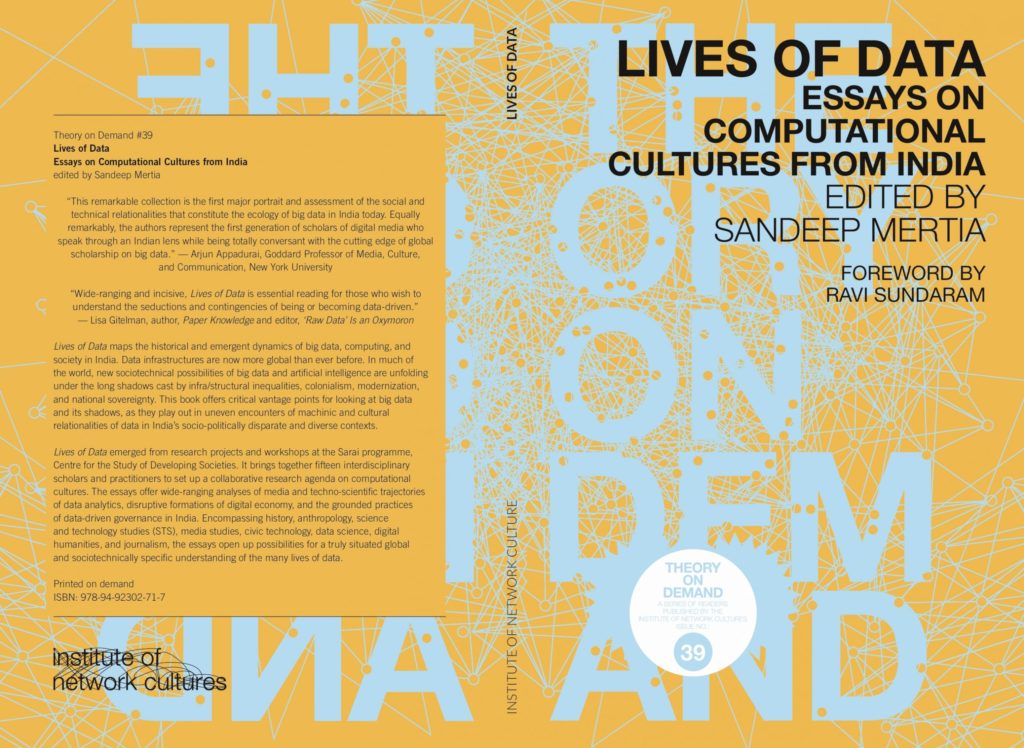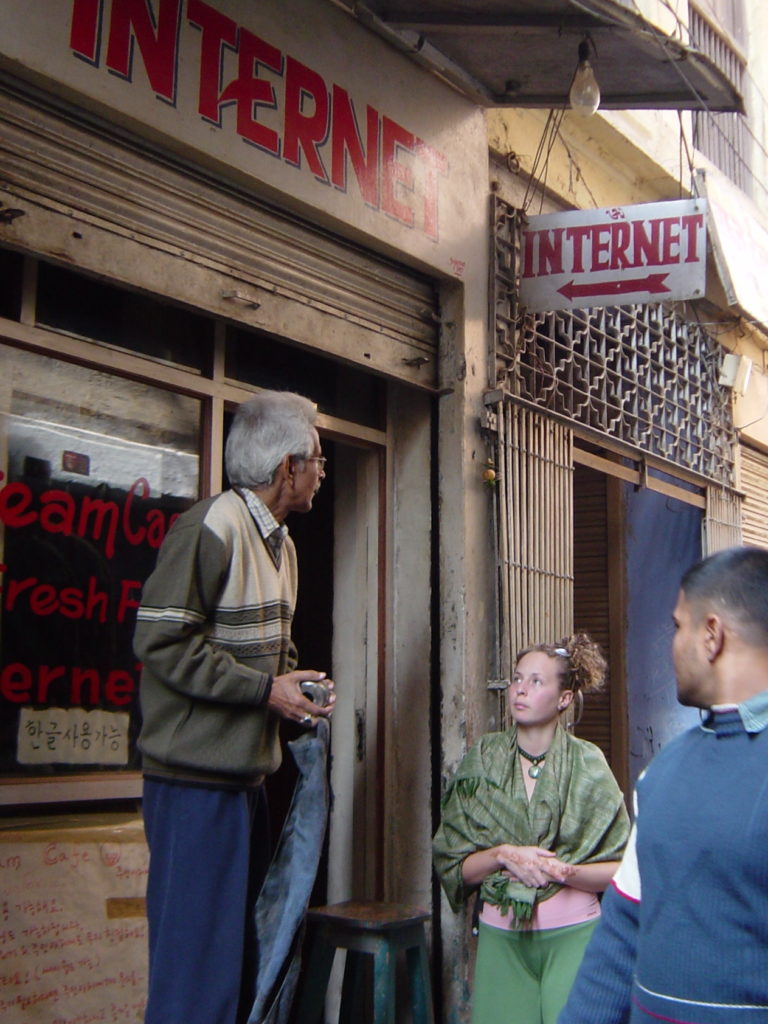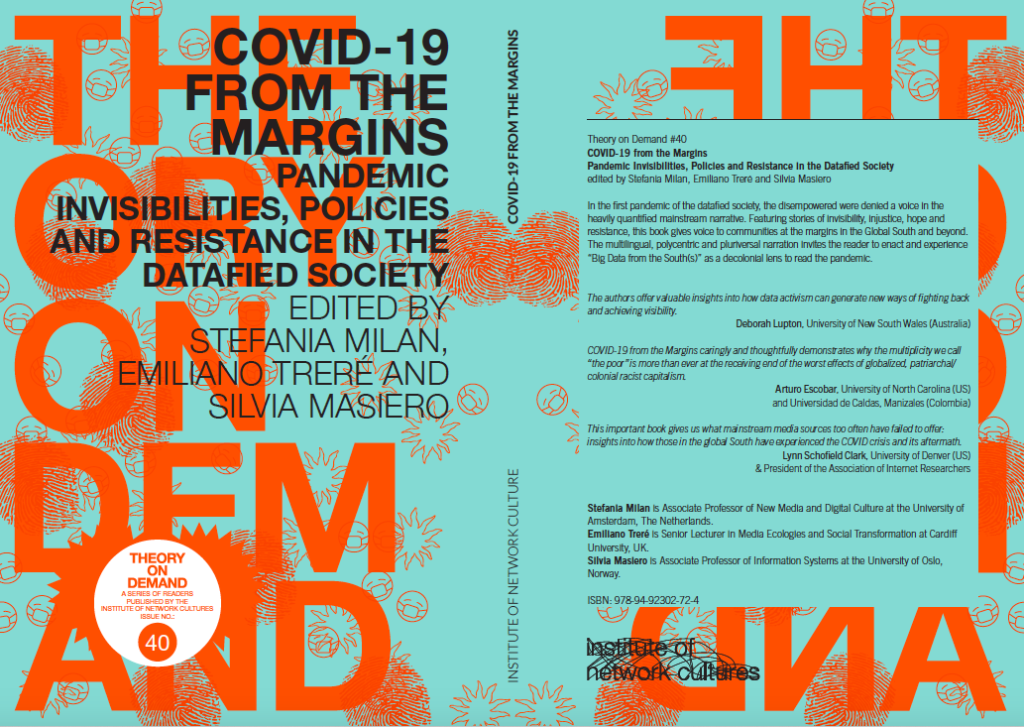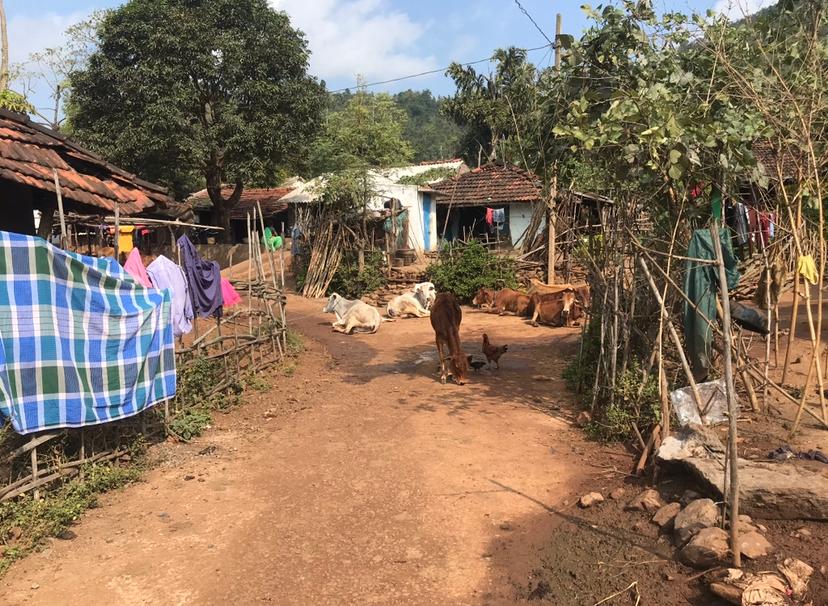2020 has been an intense year under many points of view. As you know, the DATACTIVE project was supposed to end in August 2020, but due to COVID-19 we negotiated a so-called no-cost extension with our funder, the European Research Council, which extended the life span of the project until June 30th, 2021.
Over these months, we have kept busy despite the many uncertainties and logistical problems imposed by the pandemic. We would love to share the good news and our main accomplishments, together with our best wishes for the new year.
What are we most proud of? The first of the four DATACTIVE PhD students successfully defended his PhD in October 2020! The dissertation, entitled ‘Wired Norms: Inscription, resistance, and subversion in the governance of the Internet infrastructure’, can be found here [0]. Watch out for the other PhD candidates…
We gave many talks, mostly on Zoom! But we also managed to host the workshop ‘Contentious Data: The Social Movement Society in the Age of Datafication’, organized by Davide Beraldo and Stefania on November 12-13 2020 and contributing towards the Special Issue of the same title, in preparation for the journal Social Movement Studies.
We completed data collection and analysis of over 250 interviews with civil society actors from all corners of the globe. Our developer Christo have finalized (and will soon release in GitHub) an open-source infrastructure that allows to collaboratively analyze and manage qualitative data outside the corporate environment of mainstream data analysis software and safeguarding the privacy and safety of our informants. We are now busy making sense of all these beautiful ‘thick’ data and writing up articles and chapters.
Stefania has been particularly busy with the spin-off blog of the Big Data from the South Research Initiative, dedicated to exploring the first pandemic of the datafied society seen from… communities and individuals left at the margins of media coverage, public concern and government response. You can access the many contributions published since May in COVID-19 from the Margins [1]. We are happy to announce that the blog resulted in an open-access multilingual book edited by Stefania, Emiliano Treré and Silvia Masiero for the Amsterdam-based Institute of Network Culture. The book will be released in both digital and printed form in January 2021. Book your copy if you want to receive one!
Collectively, we published four articles and three book chapters, listed below. Four articles—for New Media & Society, Globalization, and Big Data & Society, will be released in early 2021, alongside three book chapters. A co-edited special issue on media innovation and social change has been released in early 2020, while three co-edited special issues, respectively for the peer-reviewed international journals Internet Policy Review, Social Movement Studies and Palabra Clave, are in the working and will be released in the course of 2021.
Many people worked in the background alongside with PI Stefania, in particular our tireless project manager Jeroen de Vos, our developer Christo, our PhD candidates Guillén Torres and Niels ten Oever, and postdoc Davide Beraldo and to them goes our gratitude.
[0] https://nielstenoever.net/wp-content/uploads/2020/09/WiredNorms-NielstenOever.pdf
[1] https://data-activism.net/blog-covid-19-from-the-margins/
OUR PUBLICATIONS IN 2020
PhD DISSERTATION
ten Oever, Niels. (2020). Wired Norms: Inscription, resistance, and subversion in the governance of the Internet infrastructure. Ph.D thesis, University of Amsterdam
ARTICLES
Milan, S., & Treré, E. (2020). The rise of the data poor: The COVID-19 pandemic seen from the margins. Social Media + Society, July. https://doi.org/10.1177/2056305120948233
Milan, S., & Barbosa, S. (2020). Enter the WhatsApper: Reinventing digital activism at the time of chat apps. First Monday, 25(1). https://doi.org/10.5210/fm.v25i12.10414
Tanczer, L. M., Deibert, R. J., Bigo, D., Franklin, M. I., Melgaço, L., Lyon, D., Kazansky, B., & Milan, S. (2020). Online Surveillance, Censorship, and Encryption in Academia. International Studies Perspectives, 21(1), 1–36. https://doi.org/10.1093/isp/ekz016
Milan, S. (2020). Techno-solutionism and the standard human in the making of the COVID-19 pandemic. Big Data & Society. https://doi.org/10.1177/2053951720966781
SPECIAL ISSUES
Ni Bhroin, N., & Milan, S. (Eds.). (2020). Special issue: Media Innovation and Social Change. Journal of Media Innovations, 6(1). https://journals.uio.no/TJMI
BOOK CHAPTERS
ten Oever, N., Milan, S., & Beraldo, D. (2020). Studying Discourse in Internet Governance through Mailing-list Analysis. In D. L. Cogburn, L. DeNardis, N. S. Levinson, & F. Musiani (Eds.), Research Methods in Internet Governance (pp. 213–229). MIT Press. https://doi.org/10.7551/mitpress/12400.003.0011
Milan, S. (2020a). Big Data. In B. Blaagaard, L. Pérez-González, & M. Baker (Eds.), Routledge Encyclopedia of Citizen Media (pp. 37–42). Routledge.
Milan, S., & Treré, E. (2020b). Una brecha de datos cada vez mayor: La Covid-19 y el Sur Global. In B. M. Bringel & G. Pleyers (Eds.), Alerta global. Políticas, movimientos sociales y futuros en disputa en tiempos de pandemia (pp. 95–100). CLACSO and ALAS. http://biblioteca.clacso.edu.ar/clacso/se/20200826014541/Alerta-global.pdf
OTHER
Milan, S., & Treré, E. (2020c, April 3). A widening data divide: COVID-19 and the Global South. OpenDemocracy. https://www.opendemocracy.net/en/openmovements/widening-data-divide-covid-19-and-global-south/
ten Oever, Niels. (2020). ‘Cybernetica, dataficatie en surveillance in de polder‘ in: Ni Dieu, Ni Maitre. Festschrift for Ruud Kaulingfrek. Waardenwerk, Journal for Humanistic Studies, SWP.
Di Salvo, P., & Milan, S. (2020, April 24). I quattro nemici (quasi) invisibili nella prima pandemia dell’era della società dei dati. Il Manifesto. https://ilmanifesto.it/i-quattro-nemici-quasi-invisibili-nella-prima-pandemia-dellera-della-societa-dei-dati/
Milan, S., & Di Salvo, P. (2020, June 8). Four invisible enemies in the first pandemic of a “datafied society.” Open Democracy. https://www.opendemocracy.net/en/can-europe-make-it/four-invisible-enemies-in-the-first-pandemic-of-a-datafied-society/
Milan, S., Pelizza, A., & Lausberg, Y. (2020, April 28). Making migrants visible to COVID-19 counting: The dilemma. OpenDemocracy. https://www.opendemocracy.net/en/can-europe-make-it/making-migrants-visible-covid-19-counting-dilemma/
Pelizza, A., Lausberg, Y., & Milan, S. (2020, maggio). Come e perché rendere visibili i migranti nei dati della pandemia. Internazionale. https://www.internazionale.it/opinione/annalisa-pelizza/2020/05/14/migranti-dati-pandemiazza/2020/05/14/migranti-dati-pandemia
IN PRESS
BOOKS
Milan, S., Treré, E., & Masiero, S. (2021). COVID-19 from the Margins: Pandemic Invisibilities, Policies and Resistance in the Datafied Society. Institute for Networked Cultures.
ARTICLES
Kazansky B (2021). “It depends on your threat model”: Understanding the anticipatory dimensions of resistance to datafication harms. Big Data & Society.
Kazansky, B., & Milan, S. (2021). Bodies Not Templates: Contesting Mainstream Algorithmic Imaginaries. New Media & Society.
ten Oever, N. (2021). ‘This is not how we imagined it’ – Technological Affordances, Economic Drivers and the Internet Architecture Imaginary. New Media & Society.
ten Oever, Niels (2021). Norm conflict in the governance of transnational and distributed infrastructures: the case of Internet routing. Globalizations.
CHAPTERS
Milan, S., & Treré, E. (2021). Big Data From the South(s): An Analytical Matrix to Investigate Data at the Margins. In D. Rohlinger & S. Sobieraj (Eds.), The Oxford Handbook of Sociology and Digital Media. Oxford University Press.
Milan, S., & Treré, E. (2021). Latin American visions for a Digital New Deal: Learning from critical ecology, liberation pedagogy and autonomous design. In IT for Change (Ed.), Digital New Deal. IT for Change.
ten Oever, Niels. 2021. ‘The metagovernance of internet governance’. In eds. B. Haggart, N. Tusikov, and J.A. Scholte, Power and Authority in Internet Governance: Return of the State?. Routeledge Global Cooperation Series
SPECIAL ISSUES IN THE WORKING
Three special issues we are very excited about
Milan, S., Beraldo, D., & Flesher Fominaya, C. Contentious Data: The Social Movement Society in the Age of Datafication, Social Movement Studies
Treré, E., & Milan, S., Latin American Perspectives on Datafication and Artificial Intelligence, Palabra Clave
Burri, M., Irion, K, Milan, S.& Kolk, A. Governing European values inside data flows, Internet Policy Review
ALSO FROM THE TEAM….
Beraldo, D. (2020). Movements as multiplicities and contentious branding: lessons from the digital exploration of# Occupy and# Anonymous, Information, Communication & Society, DOI: 10.1080/1369118X.2020.1847164
Grover, G., & ten Oever, N. (2021). Guidelines for Human Rights Protocol and Architecture Considerations, RFC-series, Internet Research Taskforce.
Knodel, Mallory., Uhlig, Ulrike., ten Oever, Niels., Cath, Corinne. (2020) How the Internet Really Works: An Illustrated Guide to Protocols, Privacy, Censorship, and Governance. No Starch Press, San Francisco, United States.
Milan, C., & Milan, S. (2020). Fighting Gentrification from the Boxing Ring: How Community Gyms reclaim the Right to the City. Social Movement Studies. https://doi.org/10.1080/14742837.2020.1839406.









